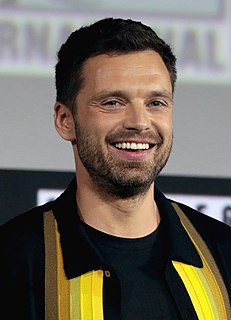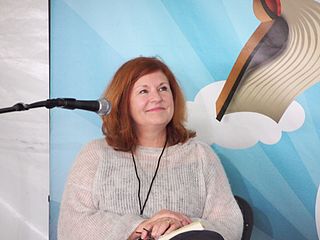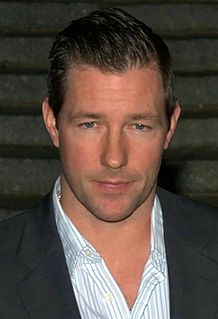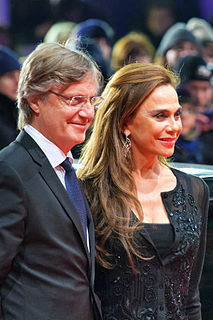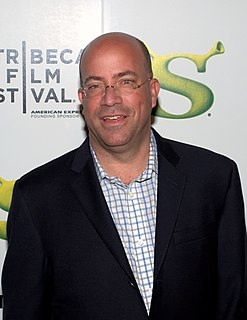A Quote by Matthew Bonifacio
Character driven stories engage me and when an audience gets to know a character in an unforced way and finds themselves rooting for him or her, those are the kind of movies that get me excited.
Related Quotes
What gets yme excited about a project and character is the director, the script, who's involved in the movie, and the character. Those are pretty much the essentials. If it's something different, if it scares me, in a way, if it will stretch me or push me into certain places that I haven't been to, then I like that. If you're just trying to talk yourself into it, then it's probably not for you. It's hard to be selective.
The earliest influence on me was the movies of the thirties when I was growing up. Those were stories. If you look at them now, you see the development of character and the twists of plot; but essentially they told stories. My mother didn't go to the movies because of a religious promise she made early in her life, and I used to go to movies and come home and tell her the plots of those old Warner Brothers/James Cagney movies, the old romantic love stories. Through these movies that had real characters, I absorbed drama, sense of pacing, and plot.
To me, the stories that have always intrigued me are the stories of people leaving my movies and being affected by them. They walk home 20 blocks the wrong way. Or they lock themselves in their office. Or they find themselves weeping when in the shower after the film. And those intrigue me, because I know I've touched something inside them.
My character on 'Voyager,' because of the way he was presented, I could go either way. I could be a real buffoon, a windbag, be self-involved, and we could get a lot of comic mileage from him. However, the audience accepted me with gravity when I was in a dire situation, so they would follow me in comic or dramatic stories.
I think there's a fundamental distinction between character-driven movies that are just really lovely slice-of-life movies and character-driven movies that you remember 20 or 30 years later; the common denominator with the ones you remember is that they all have some really complicated emotional problem at their core.
Yes, I am one of those people who feels that most of my work is adaptation of one sort or another. For me, it's a way to jump-start the engine. For example, some people use the technique of basing a character on a friend. They start writing with his or her voice, then at a certain point, the character takes off on his or her own. It probably no longer resembles the model, but it helped the author to get going. I find that's true of form, too. For every play I've written, I know what play I was trying to imitate. That helps me get going.
The instant that movies became described as character driven was the instant when characters stopped mattering in movies. In other words, the birth of the notion of the character-driven movie coincided with the birth of movies in which characters were incidental to the very activities in which they engaged.


